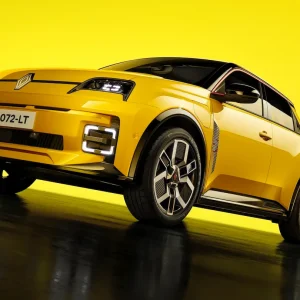Mercedes-Benz has announced that every new model it launches between now and 2020 will have a plug-in hybrid variant ? and the manufacturer will launch its first diesel PHEV in 2018.
At a recent fleet presentation in London, Rob East, head of fleet for Mercedes-Benz passenger cars, explained the manufacturer’s top priorities for the coming months, highlighting emobility as its key focus.
“We recognise Daimler has to change to reflect customer requirements,” East said. “For 131 years, we have been an engineering-led business with phenomenal products but this has made us slow to react to changing global trends.”
He suggested that the diesel PHEV will be “a real game-changer” for the global number-one premium brand, providing all the benefits of battery electric technology with the real-world fuel economy of a diesel.
“We still see a place for diesel in the marketplace and, as the next development for fleet customers, a diesel hybrid feels like a win-win,” said East. “It will especially make sense for the high-mileage driver and we are going to roll it out across several of our models.”
Mercedes describes fleet as a vital part of its focus and, so far in 2017, the manufacturer has seen positive fleet share growth of 4%. To maintain this, Mercedes understands that it needs to continue to appeal to its customer base by fulfilling their changing requirements.
“We are seeing a real shift in terms of fleet customer requirements and fleets especially are becoming more aware of CO2; there has been a significant shift in the UK,” East continued.
He explained that, while the manufacturer didn’t always have the most appealing products from a fleet perspective, the brand has worked really hard to be consistent and has always had a really clear objective.
“We are developing positive relationships with lease companies and end users, and have so far seen positive results and growth in our fleet appeal,” he said.
East also announced Mercedes’ new e-mobility sub-brand called EQ. As part of this initiative, the manufacturer will launch a comprehensive emobility ecosystem of products, the first of which will launch before the end of the decade.
“The EQ portfolio will encompass all battery electric cars as well as our associated products and services, and will show how electric cars can soon become more mainstream,” he said.
Going forwards, East noted that a priority for Mercedes is maintaining its position as the number-one fleet brand, with sustainable sales growth and a good fleet choice. “We want to make sure that it is easy to consider Mercedes-Benz as your next company car,” he explained. “It’s important that we are easy to buy from and easy to stay with, and that will differentiate us from other manufacturers.”
The manufacturer says it will work on what it calls ‘brand sharpening’, which will make the brand much more appealing to a wider range of people. This shift has already been evident in the customer profiling carried out by Mercedes, which noted that, since 2010, the age of the average buyers of its cars has changed from 56 to 41.
East remarked, “We have always been seen as a premium brand but we have changed our appeal dramatically as we are now seen as a stylish and trendy brand to a bigger age group. We didn’t want to forget about that core customer base but it is now about appealing to more people and satisfying their product needs.”
As for sales, East explains that sales growth “will continue to be delivered through products that are keeping our existing customers, but we will also begin identifying customers we haven’t had a chance to talk to yet ? and our new focus on emobility will ensure that all their needs for a clean fleet are met.”





